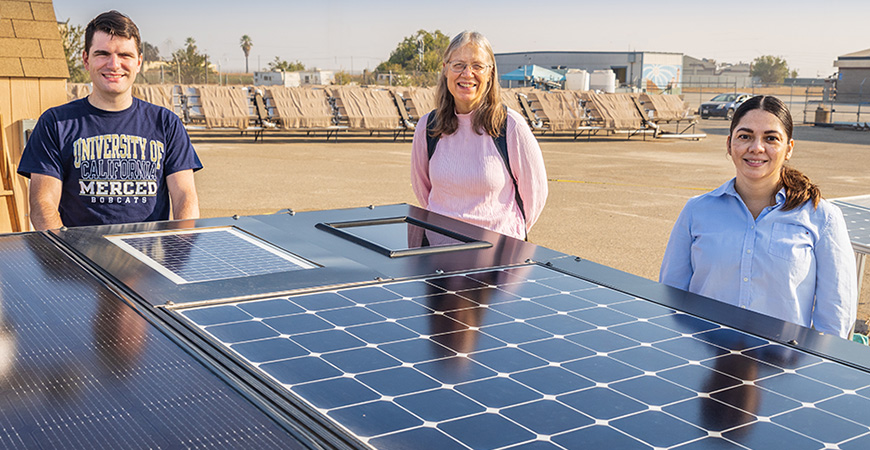
Finding creative solutions to lessen humans’ impact on the environment and reduce reliance on fossil fuels is a core tenet of the renewable energy field, something engineering Professor Sarah Kurtz specializes in.
In her most recent paper with co-author Nancy Haegel published in the Institute of Electrical and Electronics Engineers’ (IEEE) Journal of Photovoltaics, Kurtz examines the growth of the renewable energy industry. The paper, titled “Global Progress Toward Renewable Electricity: Tracking the Role of Solar,” synthesizes findings from multiple sources to offer a unified look at the state of alternative energy sources. While the use of alternative energies is increasing rapidly, solar is growing faster than any other fuel source in the past 10 years.
“The growth of solar is important because the amount of sunshine that reaches the Earth’s surface is easily adequate to power our society,” Kurtz said. “It is questionable whether any other sustainable energy source is positioned to do that.”
Global use of renewable energy sources is growing rapidly, accounting for 17% of all total electricity consumed across the world in 2020, but most countries are still dominated by fossil fuels. Kurtz’s paper uses data collected by six global organizations that track energy usage to plot electricity generation, capacity and expansion of alternative sources that could drive change in the future.
“For 2020, newly installed generating capacity was 83% renewable energy — solar, wind and hydroelectric. These values illustrate that, at this stage in the global transition to a clean, sustainable energy system, we face both the challenge and the opportunity associated with a massive system undergoing a rapid rate of change,” Kurtz writes. “Our future will be determined by understanding and making choices, not just about our current point in time, but our rate of change — and the rate of change of the rate of change.”
Tracking solar energy’s growth could present a model for tracking other energies down the road. Right now, global reliance on fossil fuels — the unhealthiest and yet most readily accessible energy — makes the air dirtier and is bad for the environment.
While minimizing this reliance is a core goal of the industry, “We are a long way from being fossil fuel free, but a transition could happen quickly if people decide they want it to happen,” Kurtz said.
“If we stopped using fossil fuels, our air would be cleaner — think of being stuck in a traffic jam and being surrounded by the exhaust from the other vehicles. A traffic jam with electric vehicles is a very different experience.”
People can make other lifestyle changes such as using an induction stove, which uses electricity, rather than a gas stove. Electing for a heat pump versus a natural gas furnace is another option. People making household changes could help move the needle toward more renewable energy usage over time.
“My personal mantra is: The beautiful thing about renewable energy is that the more we use it the cheaper it gets, which paves a pathway to prosperity for the whole world,” Kurtz said.



